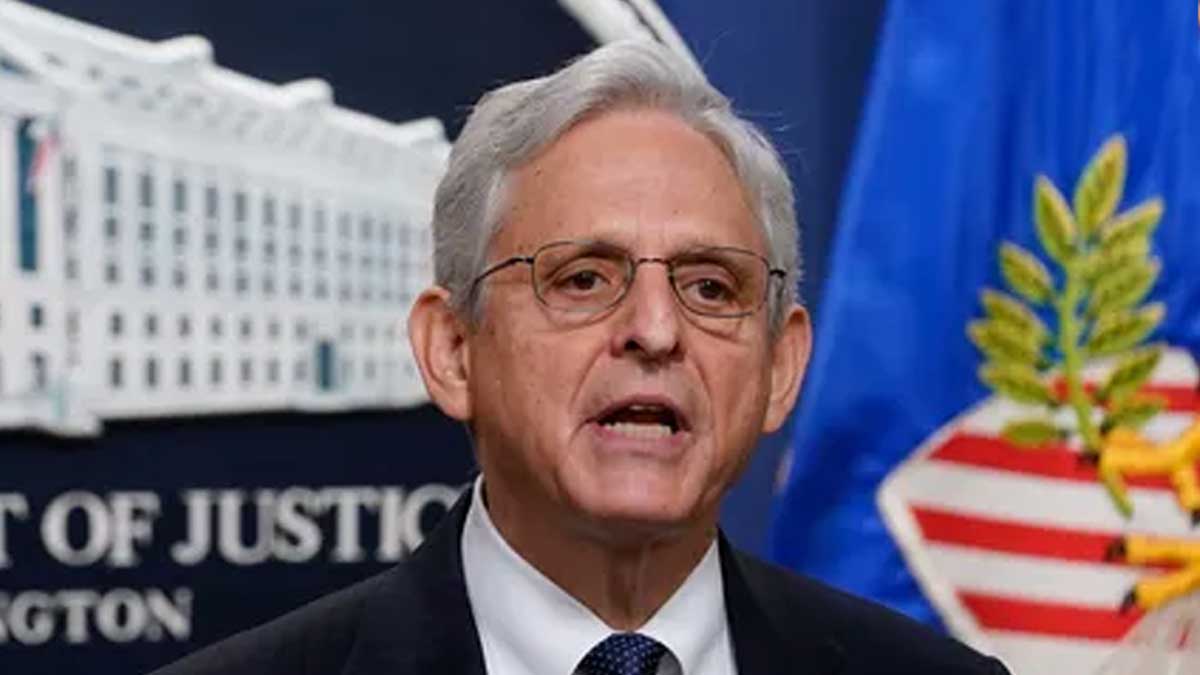- Home
- Billionaires
- Investing Newsletters
- 193CC 1000
- Article Layout 2
- Article Layout 3
- Article Layout 4
- Article Layout 5
- Article Layout 6
- Article Layout 7
- Article Layout 8
- Article Layout 9
- Article Layout 10
- Article Layout 11
- Article Layout 12
- Article Layout 13
- Article Layout 14
- Article Sidebar
- Post Format
- pages
- Archive Layouts
- Post Gallery
- Post Video Background
- Post Review
- Sponsored Post
- Leadership
- Business
- Money
- Small Business
- Innovation
- Shop
Recent Posts
House Votes to Hold AG Garland in Contempt Over Biden Tapes

The House voted Wednesday to hold Attorney General Merrick Garland in contempt of Congress for refusing to release audio tapes of President Joe Biden, a move seen as largely symbolic due to the unlikely consequences Garland faces. The vote, split 216-207 along party lines with just one Republican dissenting, reflects ongoing partisan tensions as House Republicans align with former President Donald Trump, attacking the Justice Department.
The contempt resolution is rooted in Garland’s refusal to provide audio tapes of Special Counsel Robert Hur’s interview with Biden regarding the handling of classified documents, a case that Hur concluded without prosecution. Instead of the tapes, the DOJ released a full transcript, citing concerns about deterring cooperation from future witnesses. Democrats argue that Republicans want the tapes for political use against Biden.
The Biden administration asserted executive privilege over the tapes, asserting control over their release despite the Justice Department’s jurisdiction. This move, like the contempt vote itself, is unlikely to result in real consequences for Garland.
Rep. Dave Joyce, the sole dissenting Republican, criticized the resolution as further politicizing the judicial system and urged Congress to focus on policy and governance instead.
The vote against Garland adds to the ongoing tension between the DOJ and Trump’s allies in Congress, who have criticized the department and threatened to defund it amid their own legal challenges.
Since 2008, Congress has held 10 individuals in contempt, including former Attorneys General Eric Holder and William Barr, but the Justice Department has only indicted two: Steve Bannon and Peter Navarro, former Trump advisers.
Hur’s investigation into Biden’s handling of classified documents found that Biden “willfully” retained about 50 such documents, though he could not establish guilt beyond a reasonable doubt. Hur’s report also raised concerns about Biden’s mental fitness, noting that Biden had to be reminded by his lawyers of key dates during the investigation.
It’s worth noting that previous presidents, including Trump and Obama, have used executive privilege to shield cabinet members from contempt of Congress prosecutions, highlighting the longstanding tension between the executive and legislative branches over such matters.
Recent Posts
Categories
- 193cc Digital Assets2
- 5G1
- Aerospace & Defense46
- AI37
- Arts3
- Banking & Insurance11
- Big Data3
- Billionaires449
- Boats & Planes1
- Business328
- Careers13
- Cars & Bikes76
- CEO Network1
- CFO Network17
- CHRO Network1
- CIO Network1
- Cloud10
- CMO Network18
- Commercial Real Estate7
- Consultant1
- Consumer Tech180
- CxO1
- Cybersecurity68
- Dining1
- Diversity, Equity & Inclusion4
- Education7
- Energy8
- Enterprise Tech29
- Events11
- Fintech1
- Food & Drink2
- Franchises1
- Freelance1
- Future Of Work2
- Games141
- GIG1
- Healthcare78
- Hollywood & Entertainment186
- Houses1
- Innovation42
- Investing2
- Investing Newsletters4
- Leadership65
- Lifestyle11
- Manufacturing1
- Markets20
- Media193
- Mobile phone1
- Money13
- Personal Finance2
- Policy567
- Real Estate1
- Research6
- Retail1
- Retirement1
- Small Business1
- SportsMoney33
- Style & Beauty1
- Success Income1
- Taxes2
- Travel10
- Uncategorized8
- Vices1
- Watches & Jewelry2
- world's billionaires418
Related Articles
Trump Moves $4B Stake in Truth Social Parent, Stock Drops 6%
Donald Trump recently transferred his 57% stake in Trump Media & Technology...
By 193cc Agency CouncilDecember 20, 2024House Rejects Trump-Backed Funding Bill, Shutdown Looms
The U.S. House of Representatives rejected a new government funding bill on...
By 193cc Agency CouncilDecember 20, 2024Trump Named Time’s Person of the Year for Second Time
On Thursday, Time magazine honored Donald Trump as its “Person of the...
By 193cc Agency CouncilDecember 12, 2024Meta Donates $1 Million to Trump’s Inaugural Fund
Meta, the parent company of Facebook and Instagram, has confirmed a $1...
By 193cc Agency CouncilDecember 12, 2024















Leave a comment